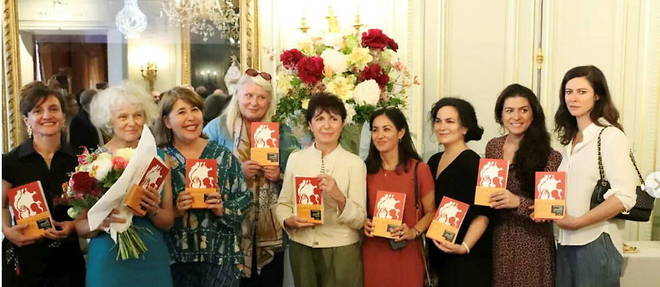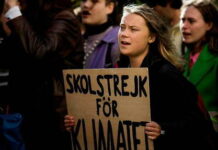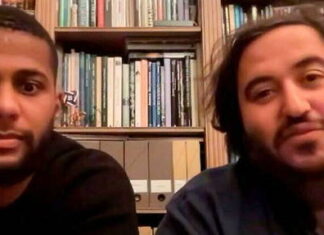The emotion of the Bulgarian author Théodora Dimova was palpable, Thursday, May 19, when she received, in the heart of the sublime Perfume Museum, the brand new Fragonard foreign literature prize, which aims to promote feminine feathers from other cultures. He also crowned his translator, Marie Vrinat-Nikolov. “I thought The Devastated was a novel about memory, but it also turned out to be a premonition of what was to come. Sometimes literature and historical destiny intertwine mystically. And the writer can only be the witness of this crossing, “said the novelist, whose award-winning work, Les Dévastés, published at the beginning of the year by the Syrtes editions, resonates powerfully with the Ukrainian drama.
The Devastated focuses on a dark page in the history of Bulgaria: the invasion of the country by the Red Army and the rise of the Communists to power, following an orchestrated coup between the September 8 and 9, 1944, with the complicity of Bulgarian agents. The totalitarian dictatorship that is taking over the country hunts down all the “thinking heads” opposed to the regime: journalists, writers, religious, scientists, entrepreneurs…
Members of the intelligentsia, well-to-do or middle-class Bulgarians, educated people, large or small landowners, were persecuted if they did not show the will to collaborate with the Soviet regime. Hundreds of men are arrested, imprisoned, tortured and executed. Their wives and children, driven from their homes and deprived of their property, are resettled in remote villages, in extremely degraded living conditions, during an exile lasting several decades.
The novel depicts three families of victims of the coup. While the fathers, an Orthodox priest, an intellectual and an entrepreneur, languish together in the same cell, undergoing in turn abuse and interrogation sessions, their wives and children organize their survival. Raina, Nikola’s wife, writer and journalist, sends in thought, on the night of his execution, a long message of love to the one who had said to her, about human catastrophes: “What happened will inevitably happen. repeat, in one form or another. »
Ekaterina, the pope’s wife, speaks to her three children. They have been deported, live in destitution, she knows she will soon die. She writes them a long letter telling them the story of their people and giving them the strength to fight the good fights. We will learn later, alas, that his wishes were not all granted. The story of the third prisoner, a wealthy businessman, is told by his adopted daughter, Magdalena, whose life is devastated by the disappearance of this father. A last part gives the floor to Alexandra, granddaughter of Nikola, heiress of a political, systemic and stubborn violence which cost the life of her father, a painter who died of grief at having been persecuted by the communist regime.
“I believe that there is no person born and raised in the era of totalitarianism who does not, in one way or another, bear the stigma of that period. In this sense, once inflicted, the scourge or stigma is passed on unconsciously from generation to generation,” says Theodora Dimova. Carried by a language of remarkable delicacy, inhabited by great emotional power, The Devastated is crossed by poignant scenes, which it is impossible to read, in 2022, without thinking of the Ukrainian drama: families torn between the terrible decision of leaving or the perilous one of facing danger, children lugged around in impossible exiles, witnesses and victims of violence, women subjected to brutality and rape by brutes suddenly proclaimed soldiers or agents of the Soviet regime… Scenes whose horror is amplified by our devastating, echo chamber-like news.
The choice of Les Dévastés for this first Fragonard Prize for Foreign Literature marks the particular importance of a voice working for memory, warding off the poison of oblivion and the eternal renewal which our amnesias make the bed of. It highlights the richness and importance of Bulgarian literature, of remarkable vivacity, relatively unknown in France. He salutes a great novelist, whom it is urgent to discover.
Endowed with the sum of 5,000 euros and a week of residence for the winning author, it also offers the sum of 2,000 euros to the translator of the work in question. Marie Vrinat-Nikolov, professor of Bulgarian language and literature and translator of more than 50 books by contemporary and classical Bulgarian authors, is therefore also awarded, after having received the prestigious Étienne Dolet translation prize last year, awarded by the Sorbonne. . A fine connoisseur of Bulgarian literature and culture, she contributes to enriching our bookstores with authors who are heirs to the torments of history, but also bearers of hope.
The jury for the Fragonard Prize for Foreign Literature is made up of: Jakuta Alikavazovic, Élise Boghossian, Danielle Cillien Sabatier, Mathias Énard, Anna Mouglalis, Alina Gurdiel, Agnès Costa and Charlotte Urbain.


















